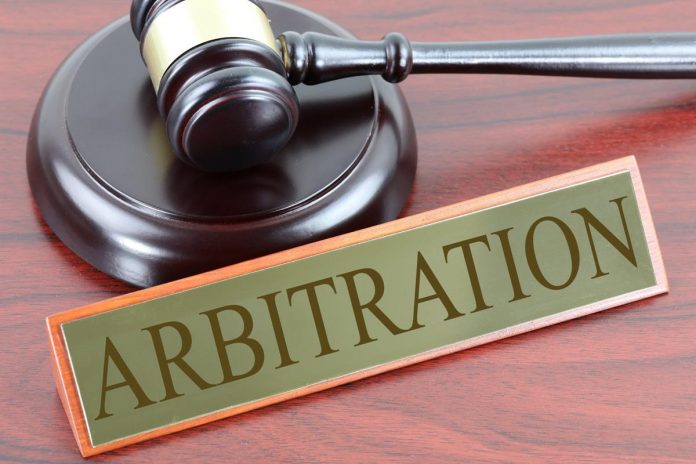This article is written by Renganath, pursuing Certificate Course in Arbitration: Strategy, Procedure and Drafting from LawSikho.
Table of Contents
Introduction
It is very common that the parties to a contract while entering into it, will have an intention to take up the contract to an execution stage. Hence, usually, they are cooperative and prefer to agree with all terms and conditions. Moreover, it will be the mindset of all parties to the contract to settle the dispute amicably and they usually opt to include such terms in their contract. A dispute or difference of opinion may arise between them due to the dishonest intention of any one of the parties or by the act of God. In that event, the erred party, though it agreed initially for the amicable and rapid settlement of the dispute, realizing the consequences, always wants to either escape from the liability in totality or to defer the outcome of the dispute resolution process. Hence he will start searching for suitable avenues to attain this object. Arbitration, of course, is a speedy redressal forum, is seldom hit by the prolonging tactics available in the Arbitration and Conciliation Act 1996 (hereinafter referred to as the Act 1996). Usually, the litigating party commences his protest at the initial stage of the arbitration proceeding himself by refusing or deferring to appoint the arbitrator. To encounter this, two issues need to be addressed:
- Whether the Arbitration and Conciliation Act 1996 provides any remedy under any section for the appointment of the arbitrator or through any other mode?
- If yes, whether such provisions have the power to grant that remedy wherever it is required?
Whether the Arbitration and Conciliation Act 1996 provides any remedy under any section for the appointment of arbitrator through any other mode?
Before analyzing the remedy, a glance at steps in the appointment of an arbitrator will help us to identify the possible grounds that are available for deferment or refusal of appointment of the arbitrator.
- As per the Act 1996, the parties to a contract may appoint the arbitrator either mutually agreed by them (ad-hoc) or through an institution.
- When the parties prefer an ad-hoc mechanism, they are free to decide the number of arbitrators but it should be odd in number.
- When the parties decide the number of arbitrators as three, then it is usually agreed by the parties that each party shall appoint one arbitrator, and then the two appointed arbitrators jointly appoint the third arbitrator.
- When the parties prefer institutional arbitration, then the institution takes the role of appointing the arbitrator(s) as per the terms and conditions agreed between the parties and the institution and following the rules of the institution.
- When any dispute or difference arises between the parties to the contract, the aggrieved party will invoke arbitration as per the terms and conditions stipulated under the contract. In case of ad-hoc arbitration, the aggrieved party, based on the number of arbitrators agreed between them, will send the arbitration notice to the other party seeking him either to accept or to appoint the arbitrator as the case may be. The other party, within 30 days from the date of receipt of such reference, has to accept or appoint the arbitrator. If the arbitration mechanism agreed between the parties to the contract is institutional arbitration, then the institution will appoint the arbitrator(s) within the stipulated time limit.
As these are the provisions laid down in the Arbitration and Conciliation Act 1996 concerning the commencement of arbitration proceedings and to appoint arbitrator(s), then the deferment or refusal will be as follows:
In case of Ad hoc arbitration the other party may refuse or defer to accept or appoint the arbitrator as the case may be (or) the two arbitrators appointed by the parties to the contract may defer appointing the third arbitrator (or);
In the case of institutional arbitration, such institutions may defer or refuse to appoint the arbitrator as per the agreed terms.
While so, the remedy to the party who is aggrieved by any one of the above grounds is, he may request the Chief Justice to appoint the arbitrator under Section 11(6) of the Act 1996.
Hence we can conclude that the Act 1996 itself contains the remedial measure under Section 11(6) to appoint the arbitrator.
If yes, whether such a provision is wide enough to grant that remedy wherever it is required?
This can be analyzed in the light of judgment pronounced by the Hon’ble Supreme court in National Highways Authority of India vs Sayedabad Tea Company Ltd. And Ors. Though it is the case between two parties, for our analysis, we could point out this as the National Highway Act 1956 vs Arbitration and Conciliation Act 1996 since the provision for appointment of arbitrator laid down in these two statutes were challenged.
Germane facts of the case
Respondent Applicant is Sayedabad Tea Company Ltd. It owned a land measuring an area of 5.08 acres and it comprised the Sayedabad Tea Estate. While so, the National Highway Authority, by exercising its powers under Section 3(D) of the National Highway Act 1956 (hereinafter referred to as ‘the Act 1956’) acquired the land to construct highways.
It is a well-known fact that whenever any private land is acquired by the authority, as per the maxim quid pro quo, suitable compensation is granted to the owner of the land. Similarly, the Act 1956 itself contains the mechanism for determining the compensation and its disbursement. It stipulates that under Section 3G (1) or (2), the competent authority will determine the quantum of the amount to be deposited towards the acquisition of land. If either Party viz. The National Highway Authority or the owner of land, whoever maybe, aggrieved on the sum so determined by the competent authority, can refer the matter to arbitration. Besides the Act 1956 has laid down the provision for arbitration under Sub-sections 5 and 6 of Section 3G as follows
3G(5): It says that the aggrieved party shall apply to the central government seeking the appointment of an arbitrator and on receipt of the application the central government shall appoint the arbitrator.
3G(6): It says that Subject to the provisions of the Act 1956, the provisions of the Act 1996 shall apply to every arbitration under this Act.
In this case, the respondent applicant, the owner of the land, being aggrieved on the quantum of compensation awarded by the competent authority applied to the central government under Section 3G(5) and prayed for the appointment of the arbitrator. As per the Act 1956, the central government has to appoint the arbitrator within 30 days from the date of receipt of an application, but it has not responded.
As the Act 1956 paved the way for the application of the Act 1996, the respondent applicant invoked Section 11(6) of the Act 1996 and approached the Hon’ble Chief Justice of the High Court of Calcutta to appoint the arbitrator. After his move, the central government appointed an arbitrator. But Hon’ble High Court of Calcutta held that the right of the central government to appoint the arbitrator was extinguished immediately after the respondent applicant invoked Section 11(6) of the Act 1996 and the Hon’ble Chief Justice of High Court of Calcutta appointed an arbitrator.
The National Highway Authority, (applicant respondent) filed a review petition before the Hon’ble High Court of Calcutta on the ground that the Act 1956 is special legislation, it contains all mechanisms for arbitration and as per the Act 1956, as the central government is vested with powers to appoint the arbitrator, application seeking appointment of arbitrator under Section 11(6) of the Arbitration and Conciliation Act never arises. But the contention was not accepted and the review petition was dismissed. Hence the National Highway Authority, (applicant respondent) to assail the same, approached the Hon’ble Apex Court.
The issue before the Hon’ble Apex Court
Should the arbitrator be appointed under the provision of the National Highways Act 1956 (referred to as Act 1956, hereinafter)or the Arbitration and Conciliation Act 1996 (referred to as Act 1996, hereinafter).
Contentions put forth by the applicant (The National Highway authority)
- The Act 1956 is a special law that contains the procedure for acquisition and determining the compensation by the competent authority.
- The Act 1956 gives power to the Central Government to appoint the arbitrator.
- Before the matter proceeded, the respondent applicant approached the High court of Calcutta by invoking Section 11(6) of the Act 1996 and it was untenable.
- The Act 1956 is a Special law inasmuch as prevail over the Act 1996, which is a general Law.
- In the light of the decision held in National Highways and Infrastructure Development Corporation Ltd. Vs. Prakash Chand Pradhan & Ors that the Special law always prevails over general law, the order passed by the High Court of Calcutta deserves to be quashed
Contentions put forth by the respondent (Sayedabad Tea Company Ltd)
- The Act 1956 paved the way for the application of the Act 1996.
- The Central government failed to exercise its power to appoint an arbitrator within 30 days from the date of application of the Respondent Applicant.
- In the light of the decision held in Deep Trading Company vs. Indian Oil Corporation and Others, the Power of the Central government to appoint the arbitrator gets forfeited when the Respondent invoked Section 11(6) of the Act 1996.
- There was no legal impediment for the High Court to appoint an arbitrator in as much as its finding is correct.
Findings of the Hon’ble Supreme Court
The Act 1956 is a special law. The usage of the term “subject to” found in Section 3G(6) indicates the overriding effect of the Act 1956 on the provisions of the Act 1996.
It is a well-settled principle that the Special law prevails over the general law inasmuch as the Act 1956 prevails over the Act 1996.
The respondent cannot invoke Section 11(6) of the Act 1996 and dismissed the order of the High Court of Calcutta.
Now a question may arise in the mind of readers as follows:
Perhaps, in the future, as like this, the authority vested with powers of appointing the arbitrator under any Special Law fails to do so, then what would be the remedy to the aggrieved party since the present judgment has shut the avenue for invoking Section 11(6) of the Act 1996?
There is a proverb that says when one door closes, another opens. Similarly, the Hon’ble apex court has rendered a solution in the very same case that the aggrieved party may knock the door of Hon’ble High Court under Article 226 or he can file a suit for the purpose
Hence in the light of the above case, we can conclude this part that the hands of Section 11(6) is not wide enough to embrace all and it has to stretch it within the allowed ambit.
Conclusion
The legislation enacts some special laws for the accomplishment of certain tasks for the welfare of the State. Hence it gives an overriding effect to such Special Acts to gear up the process as well as to attain the intended purpose. Doing so, whenever it gets stuck, the Judiciary by its interpretation lifts the clog and makes it move. In this case, Hon’ble Apex court, in line with the legal maxim “Generalibus special derogant”; special things derogate from general things emerged, has thrown light on the issue and rightly settled the matter.
Students of Lawsikho courses regularly produce writing assignments and work on practical exercises as a part of their coursework and develop themselves in real-life practical skills.
LawSikho has created a telegram group for exchanging legal knowledge, referrals, and various opportunities. You can click on this link and join:
 Serato DJ Crack 2025Serato DJ PRO Crack
Serato DJ Crack 2025Serato DJ PRO Crack











 Allow notifications
Allow notifications


